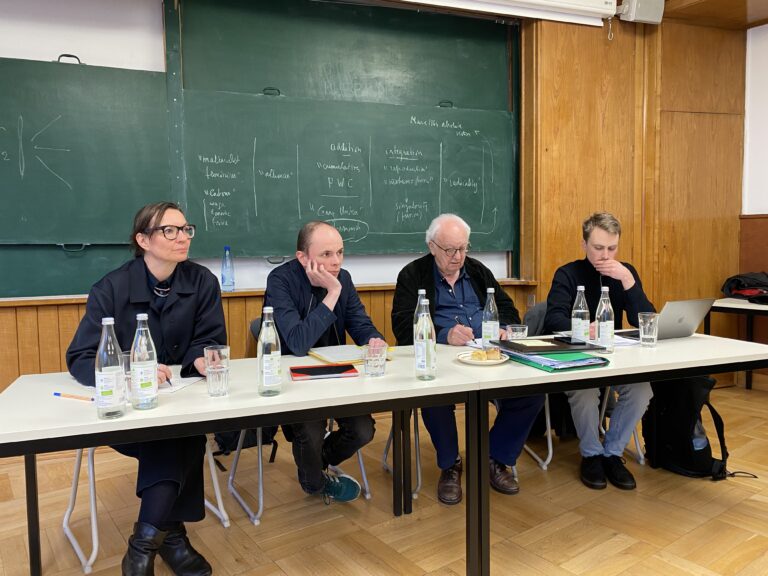organised by the Institut für Europäische Ethnologie, Humboldt-Universität zu Berlin and Center for Post-Kantian Philosophy, Universität Potsdam
Topic
FINES HOMINIS LECTURE
“TOWARDS A NEW FOUNDATION FOR PHILOSOPHICAL ANTHROPOLOGY”, to be held at University of Potsdam (April 18, 2024 16-18h – Universität Potsdam, Haus 11, Raum 0.09)
Philosophical Anthropology, sometimes confused with a theoretical humanism both by its supporters and adversaries, has been torn in the 20th century between naturalistic and historicist tendencies. It has evolved between essentialist and existentialist definitions of its object, with significant implications regarding ethical and political applications. This lecture will claim that a displacement has taken place, to which it also tries to contribute, which characterizes the “human” as a mobile and imperfect system of relations, both objective (or institutional) and subjective (or experienced), internal and external. A displacement, highlighting differences within the human, which generate conflicts in the society. A displacement, directing our attention to evolutionary relations with other species, which affect their common use of the environment. How to name, represent, conceptualize this enigmatic complexity?
LECTURE
“ANTHROPOLOGICAL DIFFERENCES: HOW DO THEY COMPARE? HOW DO THEY INTERSECT? A PHILOSOPHICAL INQUIRY” (April 19, 2024, 10-12h – HU Berlin, Institut für Europäische Ethnologie, Anton Wilhelm Amo-Straße 40/41, 10117 Berlin, Raum 408)
Gender, race, mental and physical health, but also age and intelligence can be called anthropological differences. This is because they are perceived as ways of being human, but contain opposing determinations of the human. They are socially, historically, and culturally constructed, permeated by relations of domination, and shaped by ideologies. Therefore, they are always subject to contestation, resistance, and transgression. Contemporary critical theories point out that these differences can never be neatly demarcated and attempt to link them in the construction of identities and collective agency. Intersectionality is perhaps the most influential model for this. Philosopher Étienne Balibar discusses this model on the basis of an examination of what makes anthropological differences at once comparable and non-reducible to one another.
FINES HOMINIS WORKSHOP
“TOWARDS A NEW FOUNDATION FOR PHILOSOPHICAL ANTHROPOLOGY” (April 19, 2024, 14-17h – HU Berlin, Institut für Europäische Ethnologie, Anton Wilhelm Amo-Straße 40/41, 10117 Berlin, Raum 408)
The discussion with Balibar will be continued at a workshop on April 19, 2024. In addition to the lectures, the textual basis for the workshop will be the following texts: “Bourgeois Universality and Anthropological Differences,” in: Citizen-Subject (New York: Fordham, 2016) and “Human Species as Biopolitical Concept,” in: Radical Philosophy 2.11/Winter 2021.









